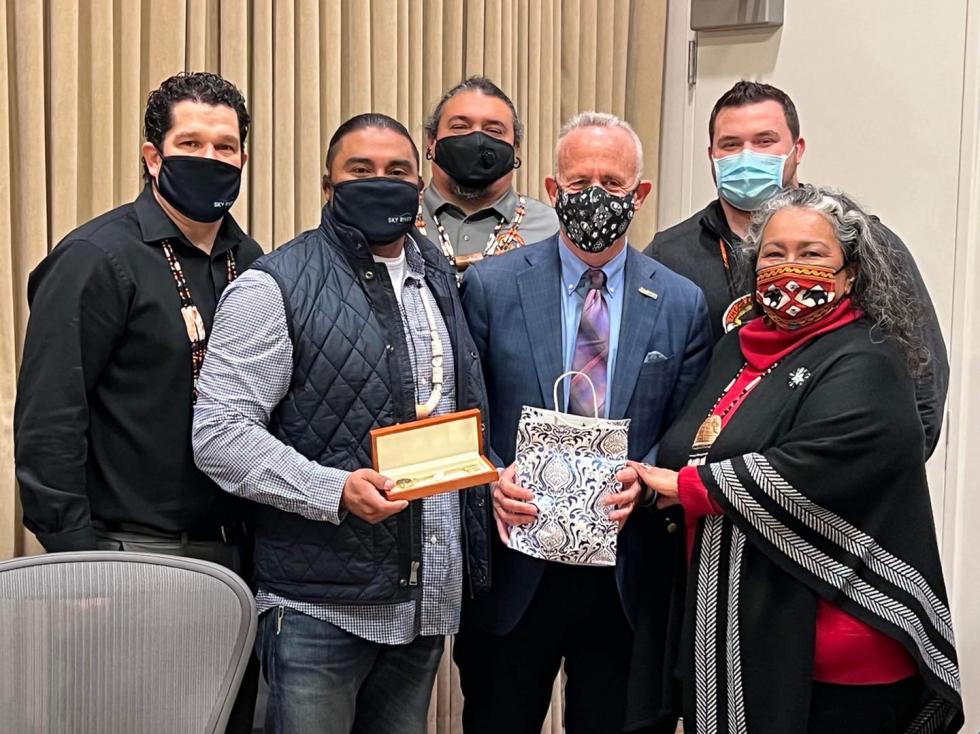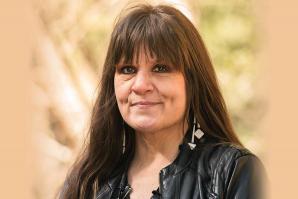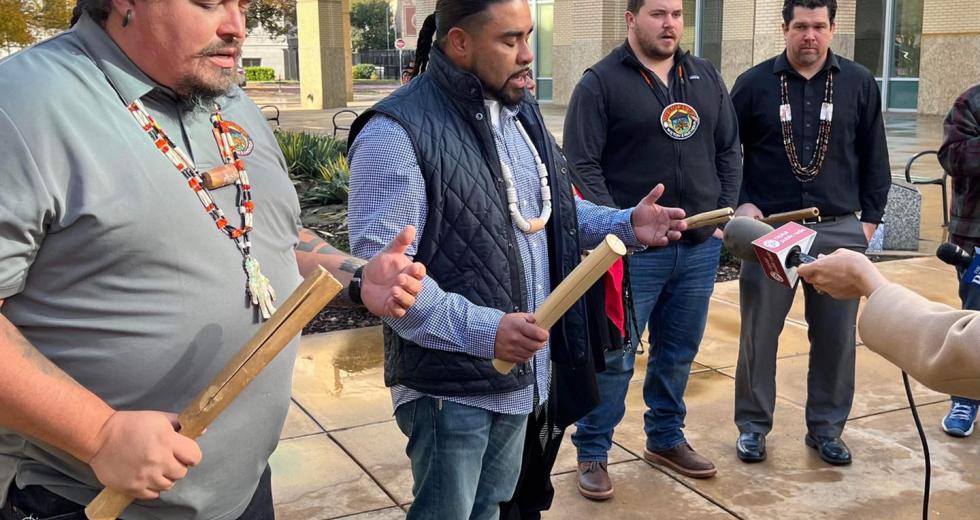Jesus Tarango, chairman of Wilton Rancheria, Sacramento County’s only federally recognized Native American tribe, made his way to Sacramento City Hall on Dec. 14 to help right a longstanding wrong.
Tarango participated in a ceremony with other leaders from the tribe hours before Sacramento City Council voted to pass a land acknowledgment. The acknowledgment, to be read before the recitation of the Pledge of Allegiance at every city meeting, notes that the region “was, and still is, the Tribal land of the Nisenan people.” For Chairman Tarango, whose tribe regained its federal recognition in 2009 and is one of several in the Capital Region with gaming projects under construction, the acknowledgment is a vital step.
“I think it’s a great thing for the city of Sacramento to have done and I hope that you get other cities, especially bigger cities that know the tribes that are there,” Tarango says.
The land acknowledgment follows a trend, Tarango says, going on elsewhere around the country. These formal statements of Indigenous peoples’ ties to colonized land originated in the 1970s in Australia, where they are known as the Acknowledgement of Country, and became popular with cultural institutions in the United States in the mid-2010s. The racial reckoning sparked by the murder of George Floyd in 2020 accelerated the adoption of land acknowledgments among governments, schools and other organizations. These statements generally do not offer a piece of land to a tribe, but they at least acknowledge that land was taken from tribal members and that the land continues to hold significance for their descendants.
“The folks aren’t asking for much. They’re asking for recognition and they’re asking for partnership and they’re asking for assistance.”
Katie Valenzuela, councilwoman, City of Sacramento
“The folks aren’t asking for much,” Sacramento City Councilwoman Katie Valenzuela says. “They’re asking for recognition and they’re asking for partnership and they’re asking for assistance.” Valenzuela hopes that the land acknowledgment, while ceremonial, will remind members of the council at the beginning of each meeting to ask themselves whether they are helping as much as they can.
Valenzuela, who notes that she is of Native American descent from an undetermined tribe, possibly located somewhere on California’s Central Coast, helped spearhead the council’s acknowledgment, along with Councilwoman Mai Vang.
“Just because my people don’t know where they’re from doesn’t mean that we don’t get to remind people that there’s a lot of us, actually, in Sacramento and around the state and around the country who have that tragic history and deserve to be acknowledged as well,” Valenzuela says. According to the most recent census, California is home to more people of Native American and Alaska Native heritage than any other state.
Sacramento Mayor Darrell Steinberg, third from right, presented
Wilton Rancheria leaders with a key to the city Dec. 14. (Photo
courtesy of Wilton Rancheria)

Aside from passing the acknowledgment, the council also agreed to allocate $100,000 to the Sacramento Native American Health Center. What happens next remains to be seen. While Wilton Rancheria is building its casino, Sky River, on tribal land, Tarango says his tribe isn’t receiving land from Sacramento as part of the acknowledgment. “I mean, that’d be great,” Tarango says. “But, no. There’s no expectation for us getting any land out of that.” Sky River is on schedule to open in late 2022 on 36 acres of tribal land surrounded by the city of Elk Grove.
Valenzuela hopes the acknowledgment will lead to more collaboration between the city and Wilton Rancheria. “I think what you’re seeing here is a sort of layering of new government with the tribal government, which is why the relationship and the acknowledgment is so important,” she says. “Because it’s important to recognize the critical role that Chairman Tarango plays (for) a co-government of this region, essentially.”
To Tarango, the relationship poses opportunities for education. “People are still clueless to Native Americans being alive today, like we don’t exist,” Tarango says. “Sometimes they talk to us as if we’re extinct. So for me, I think it’s very important not only for Wilton Rancheria but for other tribes in our great state and other states to make that noise.”
“People are still clueless to Native Americans being alive today, like we don’t exist. … I think it’s very important not only for Wilton Rancheria but for other tribes in our great state and other states to make that noise.”
Jesus Tarango, chairman, Wilton Rancheria
During the meeting, not every public speaker was supportive of the acknowledgment, with Valenzuela noting that Tarango and SNAHC chief executive officer Britta Guerrero were sometimes questioned why other, non-Native groups couldn’t be honored.
“I was just cringing the entire time,” Valenzuela says. “It isn’t their job to educate us. This was their land. This is the least we can do.”
–
Get all our web exclusives in your mailbox every week: Sign up for the Comstock’s newsletter today!
Recommended For You

Fighting for Recognition
Nevada City Rancheria spokesperson Shelly Covert on recovering land and federal status for the Nisenan Tribe
Comstock’s spoke to Covert — who was born and raised in Grass Valley — about her work with the Nisenan Tribe and why it matters.

Status Check: Finally Game Time?
Sky River Casino breaks ground in Elk Grove and clears legal hurdle ahead of possible fall 2022 opening
The casino is expected to open in the fall of 2022 on Wilton Rancheria tribal trust land at the site of an uncompleted mall.

Sweetening the Pot
Tribal casinos in the Capital Region have major construction projects underway
Amid the ongoing pandemic, several tribes in the Capital Region
are either building new casinos or undertaking significant
expansions of existing operations.




Comments
Is there a real Wilton blood line for Jesus?